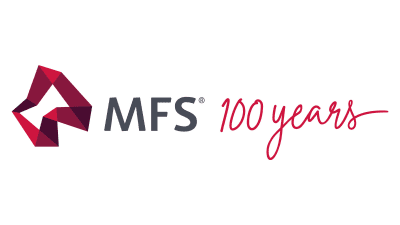Going above and beyond: Is there value in additional education?



Formal education has played a large role in enhancing the advice profession over the last decade but, with the bar now so high, two advisers debate whether it is necessary to complete additional study.
Education standards for financial advisers have been a hot topic for around a decade now, going back to 2016 when the Corporations Amendment (Professional Standards of Financial Advisers) Bill was introduced to Parliament in response to cases of unethical and inappropriate advice that had severely damaged public trust in the profession.
The bill sought to introduce specific education and training standards for advisers, requiring new and existing providers to “hold a degree (or higher equivalent) qualification, undertake a professional year, pass an exam, undertake continuous professional development (CPD), and comply with a Code of Ethics”.
In February 2017, the bill passed through the Senate and the clock started for advisers to meet the new industry requirements. Namely, advisers had until 1 January 2021 to pass the adviser exam and 1 January 2024 to meet the educational requirements, later extended to 1 January 2022 and 1 January 2026, respectively.
The bill was a game changer as prior to this, the Corporations Act simply imposed a “general obligation” on a licensee to ensure its representatives were adequately trained and competent to provide financial services.
Since the introduction of the ASIC exam, 21,991 individual candidates have sat the financial advice exam and 92 per cent have successfully passed.
But many advisers embraced the return to study; 2023 saw the passing of the 10-year experience pathway as part of the Treasury Laws Amendment (2023 Measures No. 3) Bill, instead allowing those with a decade or more experience to continue advising without an approved degree.
According to a statement from ASIC, as at 3 June, 11,006 of the 15,610 relevant providers registered on the Financial Advisers Register (FAR) have notified the regulator that they will be relying on the experience pathway or meet the education requirements.
Of the remaining 4,604 relevant providers, the regulator speculated that 1,844 may be eligible for the experience pathway but are yet to notify ASIC, leaving some 2,760 yet to fulfil the requirements to continue providing advice from 1 January.
But while some are scraping to get over the line in time for the deadline, there is a separate group who believes advisers should be going beyond these minimum requirements and pursuing further education.
Money Management has spoken with two advisers to debate the value of further education and qualifications in improving the quality of advice and professionalism against the practical learning borne through experience.
Yes: Education for the sake of excellence
Rebecca Pritchard is a senior financial planner at Rising Tide Financial Services, and currently in her final semester of a Masters of Financial Planning at Deakin University in Melbourne.
With future plans of pursuing a PhD, she is a big advocate for further education as she believes it offers an opportunity to enhance her professionalism and education.
“I’m really proud that the bar has lifted and is continuing to lift for financial planners,” Pritchard told Money Management.
Now more than a decade deep in her advice career, Pritchard praised the Financial Advice Association Australia (FAAA) for its ongoing efforts to elevate the profession, particularly via the Certified Financial Planner (CFP) designation.
She said some of her most valuable areas of learning so far have been in behavioural finance and decision-making and ethics, despite having already studied these previously.
Further to this, she said her additional ethics studies had been of far greater interest to her than any ethics content she had studied for her continuing professional development (CPD), for which advisers are required to complete nine hours of ethics training.
As CPD training is a legal requirement for every financial adviser, many have come to view this as tedious, tick-box exercise – particularly when it comes to ethics subjects – which may in turn leave them unenthused about completing additional further study.
Proactive study beyond the minimum requirement though, Pritchard explained, is a key tool in boosting advisers’ professional reputation with not only clients and peers but also with the general public as well, likening them to professional awards.
“On one hand, they’re like a badge of honour, and on other hand, they are an external body that is providing scrutiny that you then get the benefit of to say, ‘I actually went in a deep dive process and I came out on the other side with this to show for it’,” Pritchard said.
No: Experience is the true teacher
Exploring the other end of the spectrum, Grant Millar, financial adviser and founder of Inspired Financial Planners in the Gold Coast, found himself back in the fire of higher education in a final push to meet the 1 January education deadline.
Millar completed his Bachelor of Commerce in 2018 and has been a financial adviser for almost a decade but still has to complete a compulsory ethics unit.
Having enrolled in a Graduate Diploma of Financial Planning at Kaplan in order to complete this final required unit, Millar said he is unsure if he will go on to complete the entire graduate diploma.
If he does, he said, it will be for the credibility it demonstrates to his peers rather than for the sake of further education. For him, collecting qualifications won’t help him become a better adviser, and he questions whether too much value is placed on formal certifications.
“I don’t feel like I get a significant amount of value from a lot of formal qualifications. I feel like I get a lot more value out of lived experience.
“My motivation is purely for potential credibility, but also just because I have one unit that needs to be done, and I’m just doing that unit and see how I go.”
For those starting out in the profession, he agreed the formal education advisers are now required to complete before their qualification provides an important foundational and technical knowledge for their future career, but is doubtful of the benefits of further study beyond this.
Instead, he believes greater value can be obtained from experience, peer learning, industry experts and informal study of topics raised by his clients. He noted, while it may not be a formal qualification, he enjoys his own self-directed research of subjects that arise through his day-to-day work.
“I think it comes back down to just obtaining technical knowledge, which doesn’t have to be from formal education. That’s something that should be sought regularly and not just meeting the minimum CPD requirements.
“I think seeking to improve one’s technical knowledge and one’s ability to deliver better value to their clients, those are probably more valuable than having that formal qualification.”
Recommended for you
In the latest edition of Ahead of the Curve in partnership with MFS Investment Management, senior managing director Benoit Anne explores the benefits of adding global bonds to a portfolio.
While M&A has ramped up nationwide, three advice heads have explored Western Australia’s emergence as a region of interest among medium-sized firms vying for growth opportunities in an increasingly competitive market.
Private wealth firm Escala Partners is seeking to become a leading player in the Australian advice landscape, helped by backing from US player Focus Financial.
In this new series in partnership with MFS Investment Management, delve into all things fixed income and discover how you can use the asset class to build better client portfolios. In this Q&A discussion, MFS managing director- head of wholesale distribution James Langlands sits down with Evidentia senior asset consultant Ron Mehmet to discuss fund selection.









